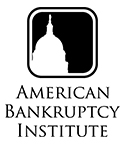When a retail company enters bankruptcy, its most valuable asset routinely includes its interest as a tenant in unexpired commercial-space leases. Subject to certain limitations, the Bankruptcy Code permits the debtor-tenant to continue its operations in the profitable locations and “reject” the unprofitable stores, which are effectively abandoned back to the landlords.
Sites Committee
Committees
As several U.S. automakers teeter on the brink of collapse, the prospect of bankruptcy reorganization has become a present-day reality for two of the largest automakers in the U.S. Reorganization would involve plant closures, brand elimination, layoffs, union concessions, reduced dealer networks, asset sales and creditor compromise.
The enactment of the Bankruptcy Abuse Prevention and Consumer Protection Act of 2005 (BAPCPA) brought sweeping changes to the Bankruptcy Code, but perhaps none more important to most unsecured trade creditors than a single word changed in 11 U.S.C. §547(c)(2).
About the author: Peter Hartheimer serves as the lead principal in General Capital Partners LLC in its New York office.
The U.S.
Bankruptcy courts addressing the issue of whether debtors may deduct college expenses for their adult children post-BAPCPA have found no statutory support for such
Recently, the U.S.
The Fifth Circuit recently affirmed a district court decision that had affirmed a bankruptcy court's decision to adjudge a debt nondischargeable pursuant to 11 U.S
There have been an increasing number of cases dealing with objections to assigned credit card debt.
The Bankruptcy Code specifically provides for adjustments of current monthly income or expenses due to "special circumstances," but in order to qualify, there must







